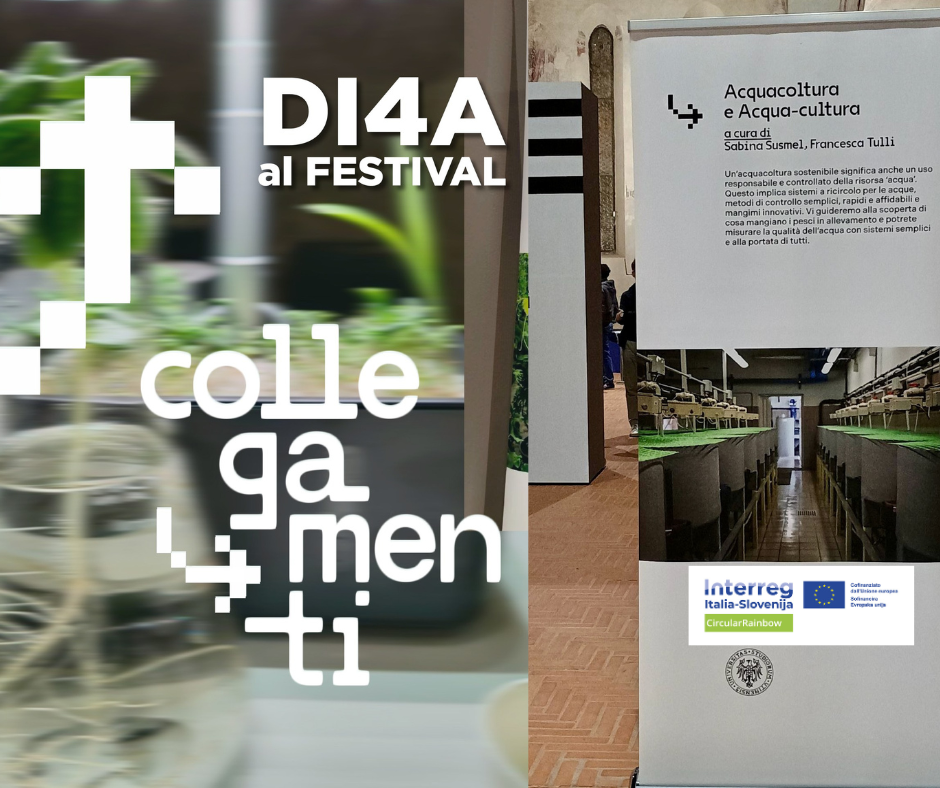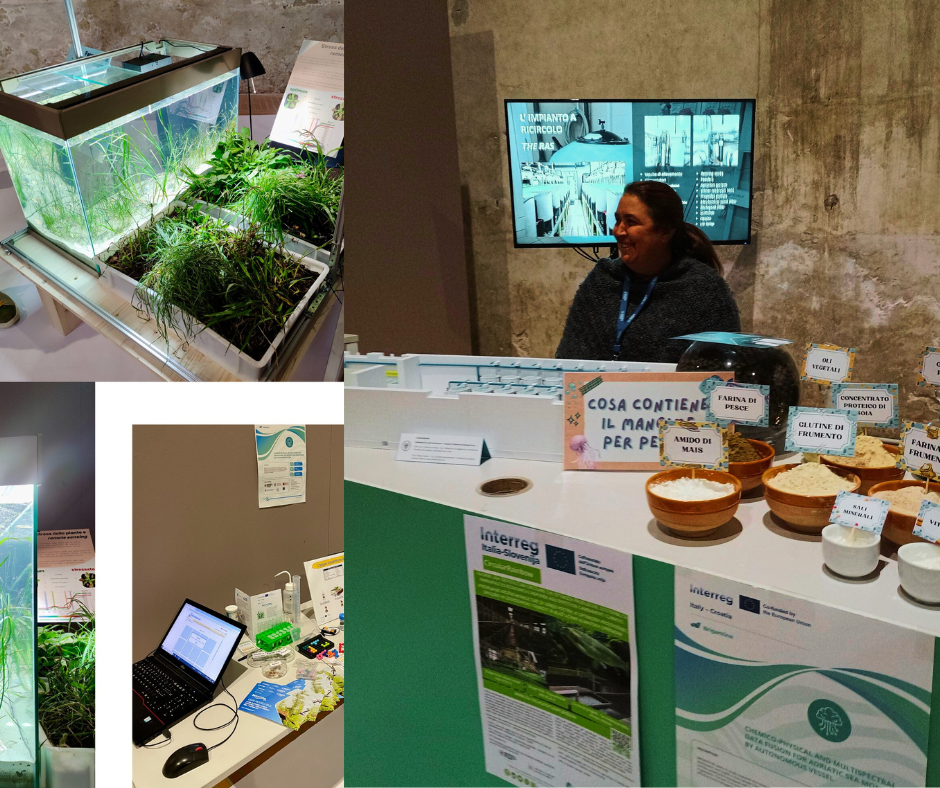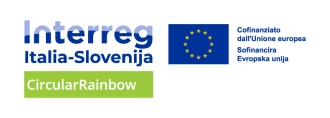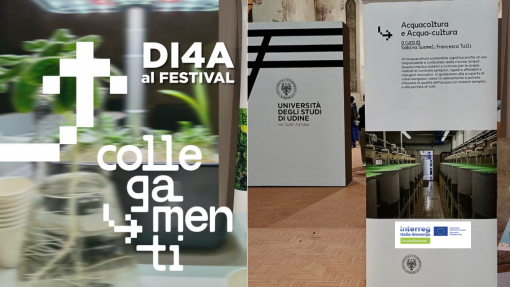Between 4 and 6 October, the Collega-menti festival, a science festival organized by the University of Udine, with the support of PromoTurismoFVG and the Municipality of Udine, was held in various locations in the historic center of the Friulian capital. Within the Festival, a showcase was set up in the evocative spaces of the church of San Francesco with 25 exhibitions and laboratories of the university. The exhibition-laboratory inaugurated by the rector Roberto Pinton, the scientific curator Barbara Gallavotti and the rector's delegate for Public Engagement Elisabetta Scarton, offered everyone the opportunity to discover in an interactive way the numerous research activities of the University of Udine.

With a focus on sustainability and innovation in the agri-food sector, the Di4A department demonstrated how research and territory are closely connected for a greener and more sustainable future. Our Interreg Italy-Slovenia project CIRCULAR RAINBOW - Promoting circular trout farming that optimizes production, environmental and economic sustainability, responding to the effects of climate change in collaboration with the Interreg Italy-Croatia Brigantine project - Fusion of chemical-physical and multispectral data for monitoring the Adriatic Sea by autonomous vessels joined together in an installation dedicated to sustainable aquaculture.
The exhibition was curated by the researcher and project manager of Circular Rainbow Gloriana Cardinaletti and by Professor Francesca Tulli who is involved in the Circular Rainbow project with activities that focus, from a circular economy perspective, on the conversion and bioconversion of waste produced in aquaculture. The project activities aim to demonstrate the energy potential of the sludge obtained from the wastewater of RAS plants through anaerobic digestion tests on a laboratory scale for the estimation of energy yields. On the other hand, the use of sludge will also be evaluated as a potential co-substrate to produce new insect biomasses, such as black soldier fly larvae. In addition, the potential of residues from anaerobic digestion (digestate) and bioconversion (frass - a mixture of unconsumed substrate, excretions and larval exuviae) processes will be evaluated for use as a soil improver/fertilizer in agronomic practices. The proposed activities aim to evaluate new application scenarios for the agro-industrial sector including fertilizers.


